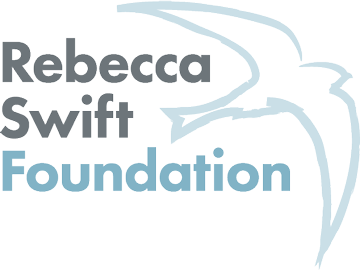
All the articles, resources and links you’ll find in our online library fit under the headings ‘Craft’, ‘Graft’, ‘The Knowledge’ and ‘Sustain’ – it’s just our way to focus on different aspects of life as a woman poet. You might find them all useful, or be drawn to one aspect over another at any one time.
Need to learn more about sonnet types? That would be ‘Craft’.
Want to get to grips with making a living out of this? ‘Graft’ is for you.
Don’t have a clue how to find a publisher? Try ‘The Knowledge’.
Having trouble with motivation and confidence? Head to ‘Sustain’.
The Rebecca Swift Foundation will commission original articles, but we’re not going to re-invent the wheel, so this page is periodically updated with links to useful content already out there. We hope you find what you need – and if you provide a service or have written a blog that might help women poets, let us know and we’ll link to you.
Craft
Courses
Find somewhere to learn! As well as our partners The Poetry School and CityLit, there are a plethora of online and in-person courses and workshops on offer from organisations throughout the UK, such as Arvon, National Centre For Writing, or Northern Writers Studio. Try this great resource from Poetry London to find a course for you, or subscribe to a writers’ magazine such as Mslexia for their articles, tutorials, and classified ads.
Peers
To really push your craft, join a writing group where you can get constructive feedback. Malika’s Poetry Kitchen, The Writing Squad and the Roundhouse famously offer this support (usually for young poets), but you might find something at your local library, or you could set something up yourself. There are some great women’s poetry collectives out there – check out Women of Words, Stirred Poetry, Octavia, Yoniverse, and Tees Women Poets for examples of how it can be done.
Books
There are many, but perennial favourites are Kim Addonizio’s Ordinary Genius and The Poet’s Companion ; The Craft and How to Be A Poet, both from Nine Arches Press; Writing Down the Bones by Natalie Goldberg; or maybe try Madness, Rack, and Honey: Collected Lectures by Mary Ruefle.
Graft
Funding
How on earth can we make a living as poets? It’s a tough one, people. Bodies that offer ‘time to write’ grants include the Arts Council England Developing Your Creative Practice, Creative Scotland and Society of Authors grants for works in progress or for residential costs. The Royal Society for Literature maintains a list of grant-making bodies for writers.
Commissions and community art
Many poets supplement their writing income with participatory, community, or educational projects of some kind. Literature agencies such as New Writing North or New Writing South occasionally commission poets to both write and engage others in writing. The same is true for smaller local community development organisations and arts centres, who may have call-outs for projects they have in mind but also be open to proposals from artists.
Project grants
You can create your own poetry or spoken word project and seek funding through Arts Council England or Arts Council Wales project grants, and local authorities, if you are able to demonstrate artistic quality and a good level of support from venues, participants, and audiences.
DIY
Many poets take an entrepreneurial approach and set up their own workshops, mentoring services, or residential courses. It helps to already have something of an established reputation before attempting this! Good examples are Wendy Pratt, Jo Bell, Kat François, and many more. Look up the website of a poet whose work you admire – you may find they are running workshops right now.
The Knowledge
Publication
How to get published is always the question on everyone’s lips, and there are a fair few pieces of advice out there, like this from Flo Reynolds or this from Poetry Wales or this in-depth overview from Roddy Lumsden. We recommend that you begin with magazines and anthologies, before working towards a pamphlet and then a full collection. Keep up to date with submissions windows for magazines and presses, and competition opportunities, by signing up for newsletters like Cathy’s Comps & Calls and the Poets’ Directory, or by checking with magazine lists like this one at Neon Books. Remember to always follow the submission guidelines.
Competitions
You can always try entering competitions, though you must weigh up the cost of entry fees against the advantages of having work placed. A few words on competitions from John McCullough might give you some insight into the process!
Residencies
A residency implies you are at a venue to work on your own writing. Most of the time you pay them for that privilege, and in a few rare cases they pay you (e.g. Kone Foundation) Opportunities for funded residencies in the UK and beyond are highly competitive and submission windows come and go, so it’s worth signing up to newsletters for places like Cove Park, Gladstone Library, Greywood Arts, Blast Theory, or the National Centre for Writing.
Sustain
Ah, and here’s the rub! Given the effort of all the above, and the certainty that rejections will come alongside your successes, how do you keep going? How do you stay true to your vision, be at peace with your ambitions, and survive the doubts and dry spells that might block you? For this, we say join our Women Poets’ Network, and let’s figure out the journey together.
Kirsten Luckins is a poet, performer, and producer based in Teesside. As well as being project manager for the Rebecca Swift Foundation, she is founder and director of the Tees Women Poets, lead writer for the Celebrating Change digital storytelling project, and co-ordinator for Crossing the Tees Book Festival. Her third collection, Passerine, was published by Bad Betty Press and longlisted for the Laurel Prize for Eco-Poetry in 2021.

